At 9:30 Roman time this morning in St. Peter’s Basilica, Pope Francis presided at the Mass of Chrism, which takes places in all the Cathedrals of the world this week. During the Eucharistic celebration, the priests renewed the promises they made at the moment of their ordination. Holy Oils were then blessed: the oil of the sick, the oil of catechumens, and the sacred chrism. Below is the homily delivered by Pope Francis after the proclamation of the Gospel, on the theme of overcoming weariness and obtaining the Lord’s strength.
“My hand shall ever abide with him, my arms also shall strengthen him” (Ps 89:21). This is what the Lord means when he says: “I have found David, my servant; with my holy oil I have anointed him” (v. 20). It is also what our Father thinks whenever he “encounters” a priest. And he goes on to say: “My faithfulness and my steadfast love shall be with him… He shall cry to me, ‘You are my Father, my God and the rock of my salvation”’ (vv. 24, 26).
It is good to enter with the Psalmist into this monologue of our God. He is talking about us, his priests, his pastors. But it is not really a monologue, since he is not the only one speaking. The Father says to Jesus: “Your friends, those who love you, can say to me in a particular way: ‘You are my Father’” (cf. Jn 14:21). If the Lord is so concerned about helping us, it is because he knows that the task of anointing his faithful people is demanding; it can tire us. We experience this in so many ways: from the ordinary fatigue brought on by our daily apostolate to the weariness of sickness, death and even martyrdom. The tiredness of priests! Do you know how often I think about this weariness which all of you experience? I think about it and I pray about it, often, especially when I am tired myself. I pray for you as you labour amid the people of God entrusted to your care, many of you in lonely and dangerous places. Our weariness, dear priests, is like incense which silently rises up to heaven (cf. Ps 141:2; Rev 8:3-4). Our weariness goes straight to the heart of the Father.
Know that the Blessed Virgin Mary is well aware of this tiredness and she brings it straight to the Lord. As our Mother, she knows when her children are weary, and this is her greatest concern. “Welcome! Rest, my child. We will speak afterwards…”. “Whenever we draw near to her, she says to us: “Am I not here with you, I who am your Mother?” (cf. Evangelii Gaudium, 286). And to her Son she will say, as she did at Cana, “They have no wine” (Jn 2:3).
It can also happen that, whenever we feel weighed down by pastoral work, we can be tempted to rest however we please, as if rest were not itself a gift of God. We must not fall into this temptation. Our weariness is precious in the eyes of Jesus who embraces us and lifts us up. “Come to me, all who labour and are overburdened, and I will give you rest” (Mt 11:28). Whenever a priest feels dead tired, yet is able to bow down in adoration and say: “Enough for today Lord”, and entrust himself to the Father, he knows that he will not fall but be renewed. The one who anoints God’s faithful people with oil is also himself anointed by the Lord: “He gives you a garland instead of ashes, the oil of gladness instead of mourning, the mantle of praise instead of a faint spirit” (cf. Is 61:3).
Let us never forget that a key to fruitful priestly ministry lies in how we rest and in how we look at the way the Lord deals with our weariness. How difficult it is to learn how to rest! This says much about our trust and our ability to realize that that we too are sheep. A few questions can help us in this regard. Do I know how to rest by accepting the love, gratitude and affection which I receive from God’s faithful people? Or, once my pastoral work is done, do I seek more refined relaxations, not those of the poor but those provided by a consumerist society? Is the Holy Spirit truly “rest in times of weariness” for me, or is he just someone who keeps me busy? Do I know how to seek help from a wise priest? Do I know how to take a break from myself, from the demands I make on myself, from my self-seeking and from my self-absorption? Do I know how to spend time with Jesus, with the Father, with the Virgin Mary and Saint Joseph, with my patron saints, and to find rest in their demands, which are easy and light, and in their pleasures, for they delight to be in my company, and in their concerns and standards, which have only to do with the greater glory of God? Do I know how to rest from my enemies under the Lord’s protection? Am I preoccupied with how I should speak and act, or do I entrust myself to the Holy Spirit, who will teach me what I need to say in every situation? Do I worry needlessly, or, like Paul, do I find repose by saying: “I know him in whom I have placed my trust” (2 Tim 1:12)?
Let us return for a moment to what today’s liturgy describes as the work of the priest: to bring good news to the poor, to proclaim freedom to prisoners and healing to the blind, to offer liberation to the downtrodden and to announce the year of the Lord’s favour. Isaiah also mentions consoling the broken-hearted and comforting the afflicted. These are not easy or purely mechanical jobs, like running an office, building a parish hall or laying out a soccer field for the young of the parish… The tasks of which Jesus speaks call for the ability to show compassion; our hearts are to be “moved” and fully engaged in carrying them out. We are to rejoice with couples who marry; we are to laugh with the children brought to the baptismal font; we are to accompany young fiancés and families; we are to suffer with those who receive the anointing of the sick in their hospital beds; we are to mourn with those burying a loved one… All these emotions can exhaust the heart of a pastor. For us priests, what happens in the lives of our people is not like a news bulletin: we know our people, we sense what is going on in their hearts. Our own heart, sharing in their suffering, feels “com-passion”, is exhausted, broken into a thousand pieces, moved and even “consumed” by the people. Take this, eat this… These are the words the priest of Jesus whispers repeatedly while caring for his faithful people: Take this, eat this; take this, drink this… In this way our priestly life is given over in service, in closeness to the People of God… and this always leaves us weary.
I wish to share with you some forms of weariness on which I have meditated. There is what we can call “the weariness of people, the weariness of the crowd”. For the Lord, and for us, this can be exhausting – so the Gospel tells us – yet it is a good weariness, a fruitful and joyful exhaustion. The people who followed Jesus, the families which brought their children to him to be blessed, those who had been cured, those who came with their friends, the young people who were so excited about the Master… they did not even leave him time to eat. But the Lord never tired of being with people. On the contrary, he seemed renewed by their presence (cf. Evangelii Gaudium, 11). This weariness in the midst of activity is a grace on which all priests can draw (cf. ibid., 279). And how beautiful it is! People love their priests, they want and need their shepherds! The faithful never leave us without something to do, unless we hide in our offices or go out in our cars wearing sun glasses. There is a good and healthy tiredness. It is the exhaustion of the priest who wears the smell of the sheep… but also smiles the smile of a father rejoicing in his children or grandchildren. It has nothing to do with those who wear expensive cologne and who look at others from afar and from above (cf. ibid., 97). We are the friends of the Bridegroom: this is our joy. If Jesus is shepherding the flock in our midst, we cannot be shepherds who are glum, plaintive or, even worse, bored. The smell of the sheep and the smile of a father…. Weary, yes, but with the joy of those who hear the Lord saying: “Come, O blessed of my Father” (Mt 25:34).
There is also the kind of weariness which we can call “the weariness of enemies”. The devil and his minions never sleep and, since their ears cannot bear to hear the word of God, they work tirelessly to silence that word and to distort it. Confronting them is more wearying. It involves not only doing good, with all the exertion this entails, but also defending the flock and oneself from evil (cf. Evangelii Gaudium, 83). The evil one is far more astute than we are, and he is able to demolish in a moment what it took us years of patience to build up. Here we need to implore the grace to learn how to “offset”: to thwart evil without pulling up the good wheat, or presuming to protect like supermen what the Lord alone can protect. All this helps us not to let our guard down before the depths of iniquity, before the mockery of the wicked. In these situations of weariness, the Lord says to us: “Have courage! I have overcome the world!” (Jn 16:33).
And finally – lest you be wearied by this homily itself! – there is also “weariness of ourselves” (cf. Evangelii Gaudium, 277). This may be the most dangerous weariness of all. That is because the other two kinds come from being exposed, from going out of ourselves to anoint and to do battle (for our job is to care for others). But this third kind of weariness is more “self-referential”: it is dissatisfaction with oneself, but not the dissatisfaction of someone who directly confronts himself and serenely acknowledges his sinfulness and his need for God’s mercy; such people ask for help and then move forward. Here we are speaking of a weariness associated with “wanting yet not wanting”, having given up everything but continuing to yearn for the fleshpots of Egypt, toying with the illusion of being something different. I like to call this kind of weariness “flirting with spiritual worldliness”. When we are alone, we realize how many areas of our life are steeped in this worldliness, so much so that we may feel that it can never be completely washed away. This can be a dangerous kind of weariness. The Book of Revelation shows us the reason for this weariness: “You have borne up for my sake and you have not grown weary. But I have this against you, that you have abandoned the love you had at first” (Rev 2:3-4). Only love gives true rest. What is not loved becomes tiresome, and in time, brings about a harmful weariness.
The most profound and mysterious image of how the Lord deals with our pastoral tiredness is that, “having loved his own, he loved them to the end” (Jn 13:1): the scene of his washing the feet of his disciples. I like to think of this as the cleansing of discipleship. The Lord purifies the path of discipleship itself. He “gets involved” with us (Evangelii Gaudium, 24), becomes personally responsible for removing every stain, all that grimy, worldly smog which clings to us from the journey we make in his name.
From our feet, we can tell how the rest of our body is doing. The way we follow the Lord reveals how our heart is faring. The wounds on our feet, our sprains and our weariness, are signs of how we have followed him, of the paths we have taken in seeking the lost sheep and in leading the flock to green pastures and still waters (cf. ibid., 270). The Lord washes us and cleanses us of all the dirt our feet have accumulated in following him. This is something holy. Do not let your feet remain dirty. Like battle wounds, the Lord kisses them and washes away the grime of our labours.
Our discipleship itself is cleansed by Jesus, so that we can rightly feel “joyful”, “fulfilled”, “free of fear and guilt”, and impelled to go out “even to the ends of the earth, to every periphery”. In this way we can bring the good news to the most abandoned, knowing that “he is with us always, even to the end of the world”. Let us learn how to be weary, but weary in the best of ways!
Hat tip to Fr Rosica and the Vatican Press office for the translation – ed.
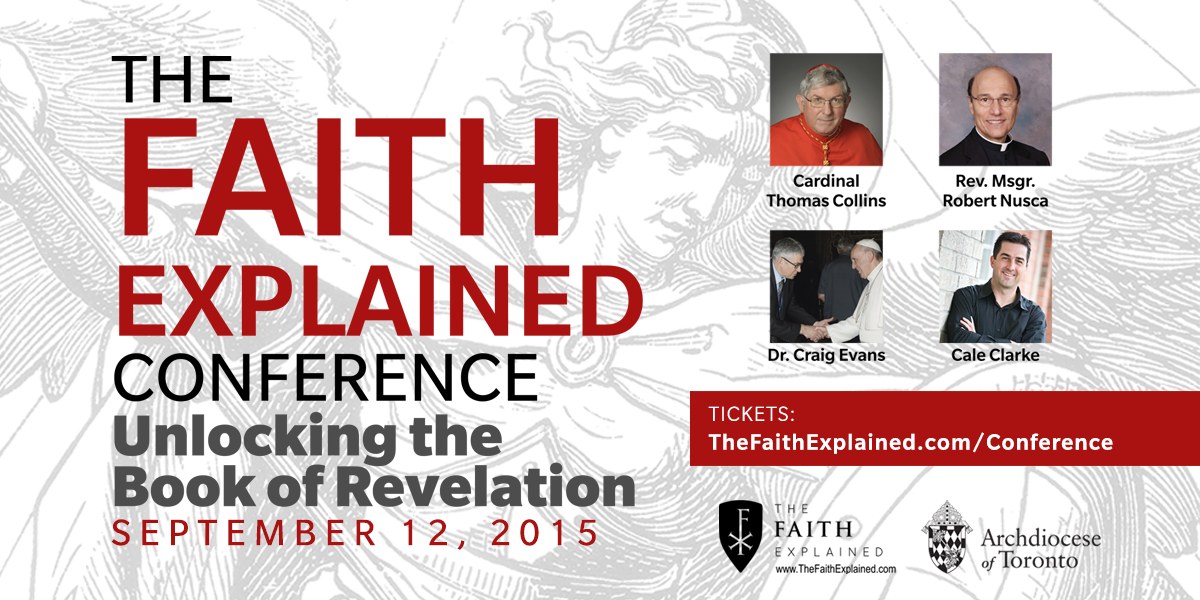


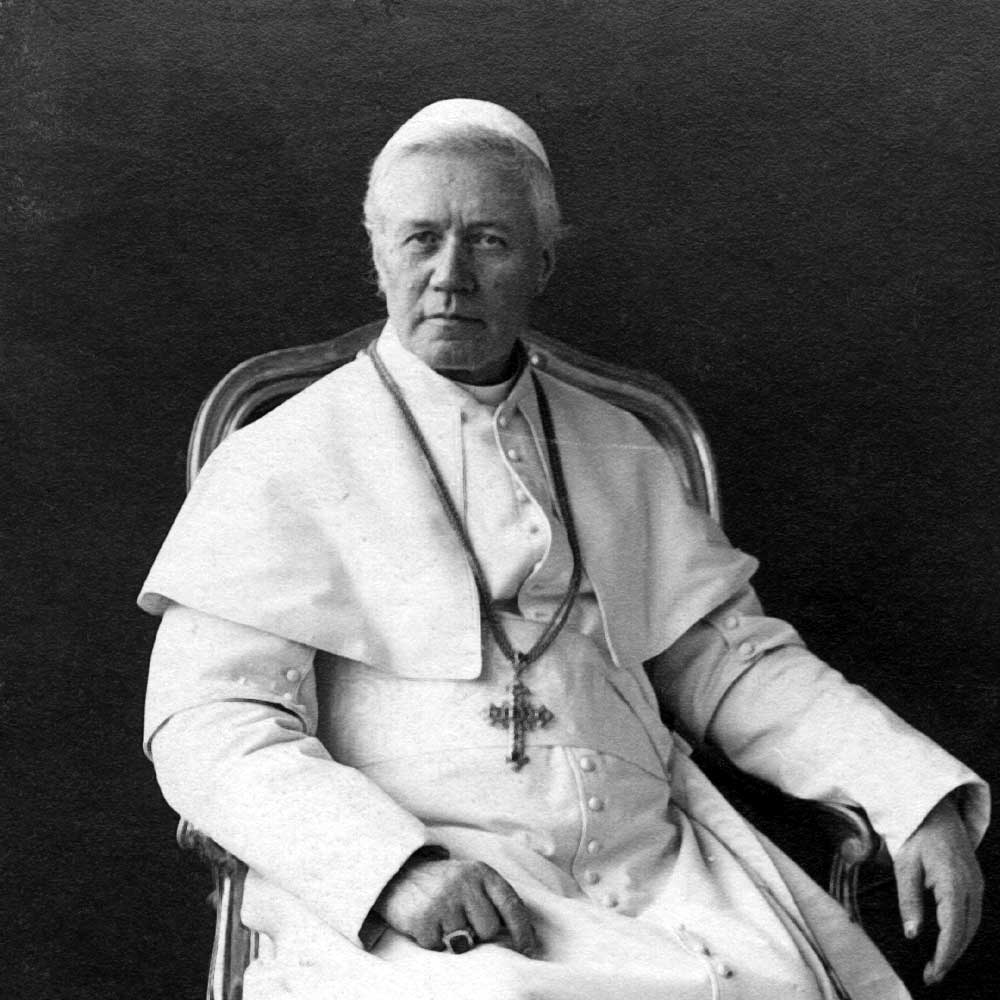 Today marks the feast day of Pope St Pius X, who occupied the See of Peter from 1903-1914. One of St Pius’ great reforms was to lower the age of first communicants to the age of reason (usually considered to be around eight years old). As long as a child believed that the Eucharist was the Body, Blood, Soul, and Divinity of Jesus Christ – hidden under the appearances of bread and wine, that child could receive communion. This is a great thing, because it reminds us that we can be sure a doctrine is true, without necessarily having complete and total understanding of it.
Today marks the feast day of Pope St Pius X, who occupied the See of Peter from 1903-1914. One of St Pius’ great reforms was to lower the age of first communicants to the age of reason (usually considered to be around eight years old). As long as a child believed that the Eucharist was the Body, Blood, Soul, and Divinity of Jesus Christ – hidden under the appearances of bread and wine, that child could receive communion. This is a great thing, because it reminds us that we can be sure a doctrine is true, without necessarily having complete and total understanding of it.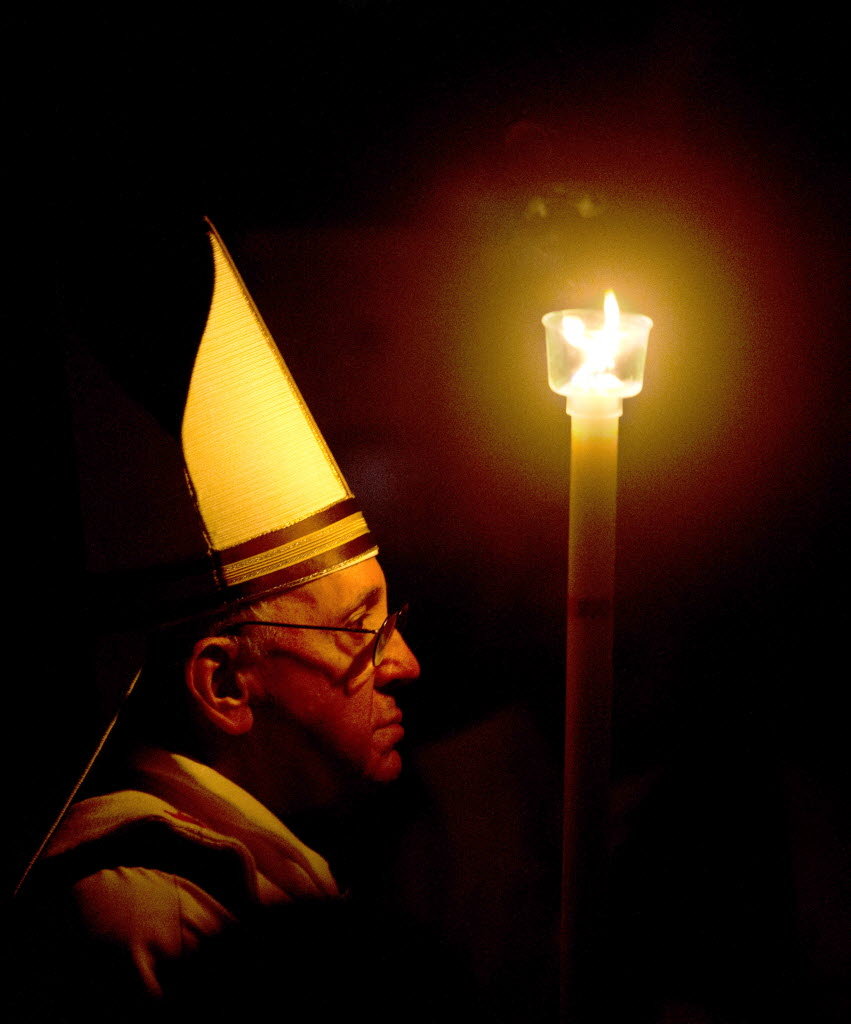

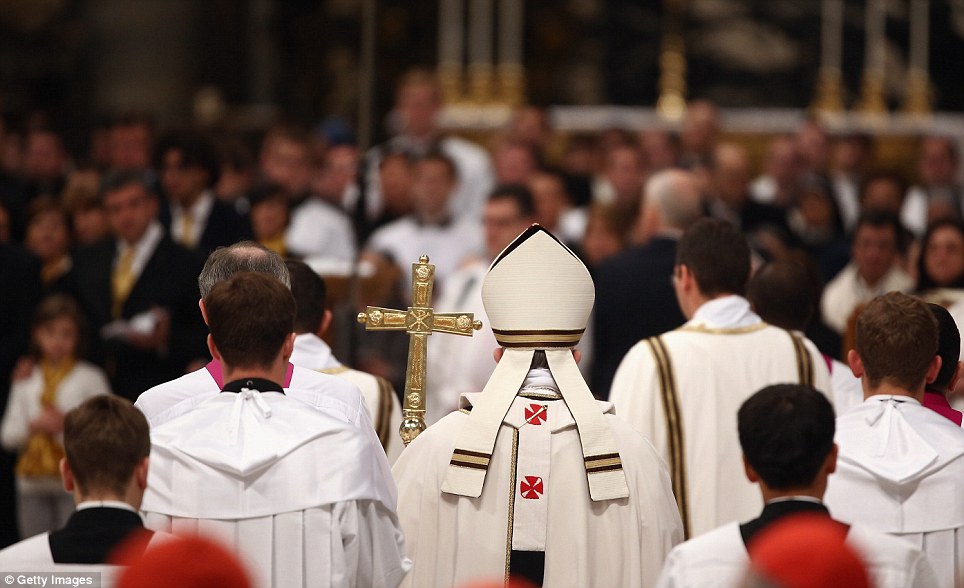
 Q. What exactly is spiritual reading?
Q. What exactly is spiritual reading?
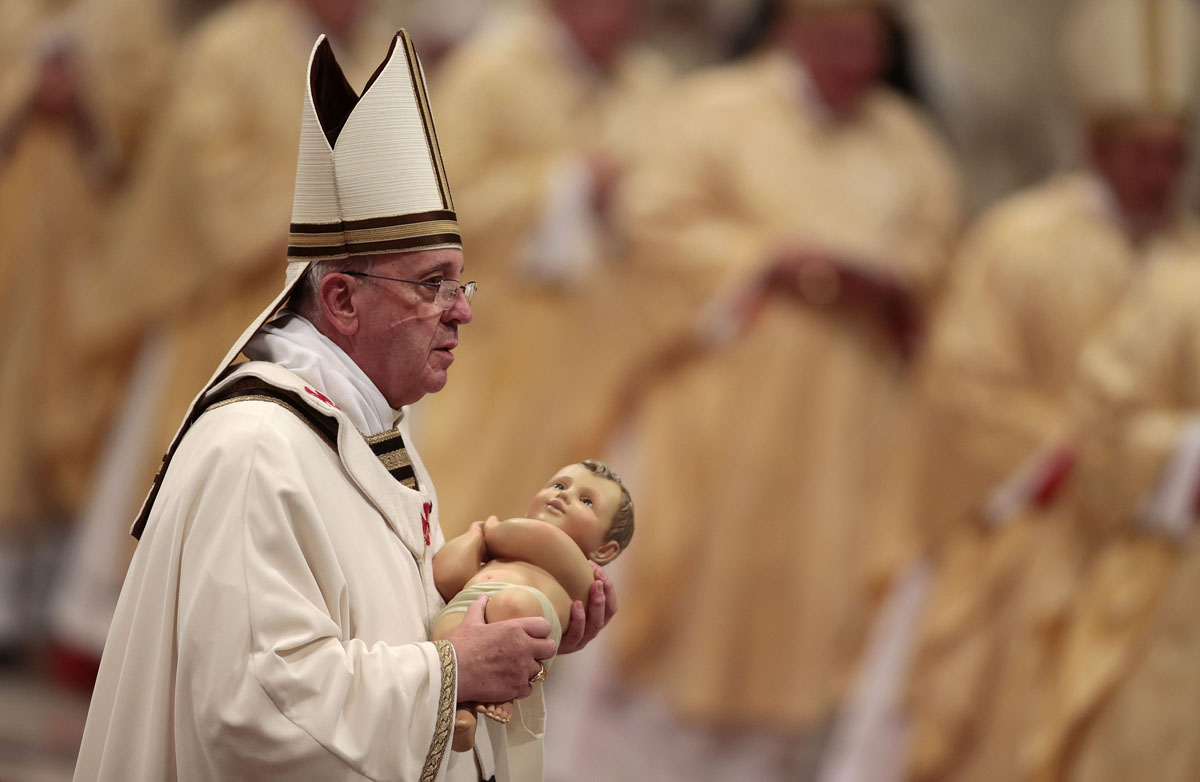
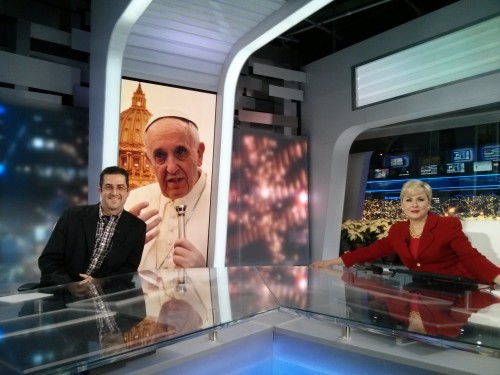 CTV News interviewed me about Pope Francis’ Christmas message to the Roman Curia (essentially those Church officials responsible for the internal functioning of key Vatican departments). Since my entire live interview on CTV News Channel with Jennifer Ward was not posted online (a brief, out of context clip appeared on the nightly National News broadcast with Lisa LaFlamme), I’m going to summarize my key points below. There has been a great deal of interest surrounding what the Pontiff said, which many have interpreted as a “stinging rebuke” by the Holy Father, that was “received coldly” by his audience. Is that really the case?
CTV News interviewed me about Pope Francis’ Christmas message to the Roman Curia (essentially those Church officials responsible for the internal functioning of key Vatican departments). Since my entire live interview on CTV News Channel with Jennifer Ward was not posted online (a brief, out of context clip appeared on the nightly National News broadcast with Lisa LaFlamme), I’m going to summarize my key points below. There has been a great deal of interest surrounding what the Pontiff said, which many have interpreted as a “stinging rebuke” by the Holy Father, that was “received coldly” by his audience. Is that really the case? Q. Can you tell us about the significance of this Sunday’s Gospel reading?
Q. Can you tell us about the significance of this Sunday’s Gospel reading?